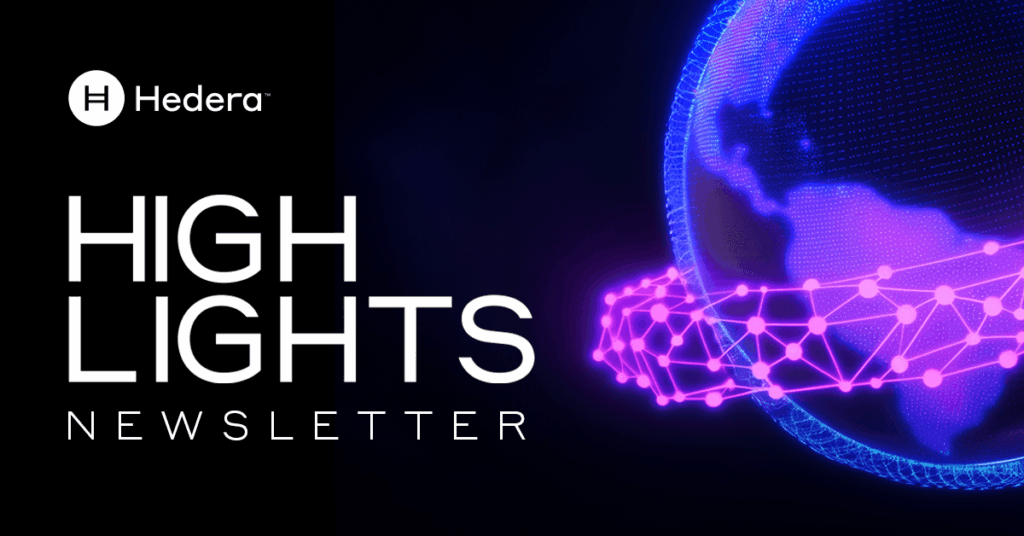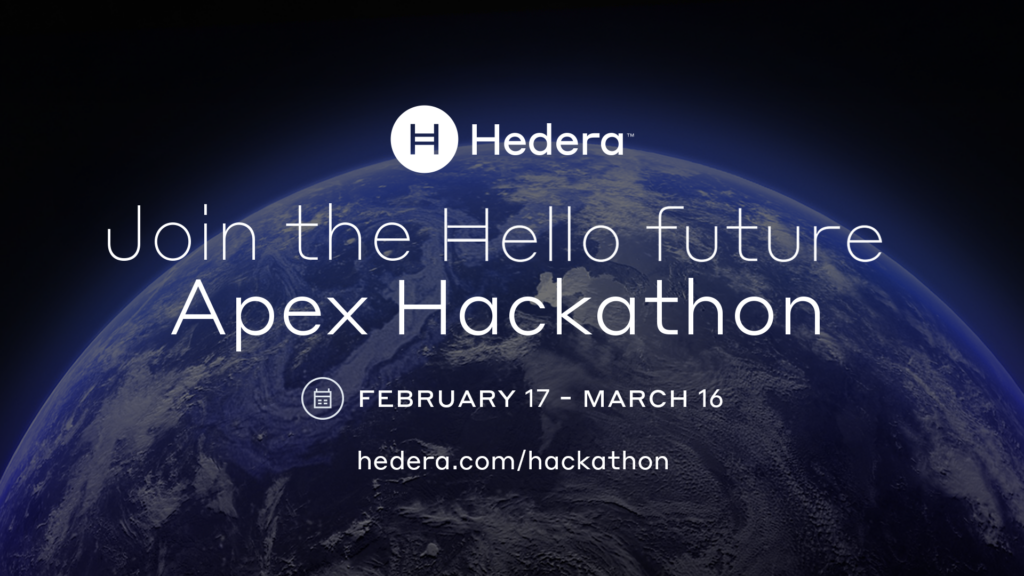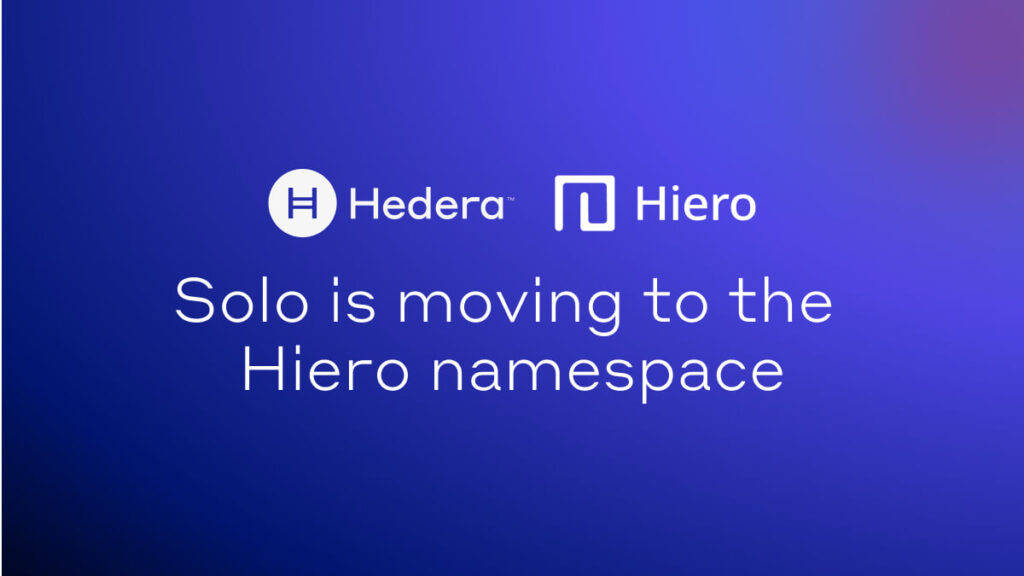Starting January 2026, the price for the ConsensusSubmitMessage transaction will increase from $0.0001 to $0.0008 USD. This change will take effect with the v0.69 mainnet release and applies only to ConsensusSubmitMessage transactions. This update improves the long-term economic sustainability of the Hedera network, while preserving predictable and USD-fixed pricing for developers. For more information, visit https://hedera.com/blog/price-update-to-consensussubmitmessage-in-consensus-service-january-2026.
Today marks the launch of the official Hedera Hashgraph Partner Program.
My name is Nigel Clark, SVP of Industries and Partners at Hedera. I work alongside every partner at Hedera to help grow their business, unlock value for their customers, and offer opportunities to participate in growing the Hedera ecosystem.
Since the launch of the Hedera mainnet, a group of over 23 organizations and enterprise application builders have come together to further decentralize the Hedera ecosystem and deliver value to companies around the globe. In the spirit of Hedera’s path to decentralization, this program establishes a foundation upon which a fully decentralized partner community will grow and thrive.
Whether you’re looking to find a partner to help build your application, apply as a partner, or just learn more about the program and who’s involved, please visit https://www.hedera.com/partners/.
Three Types of Hedera Partners
The program consists of 3 partner types:
-
Systems Integrators: Systems integrators offer consulting and implementation services to support clients using Hedera Hashgraph across a wide range of application use cases. Hedera is committed to making it as easy as possible for systems integrators to build a profitable business through the implementation of Hedera Hashgraph.
-
Technology Partners: Technology Partners help further decentralize the development of tools and services within the Hedera ecosystem. This includes features and functionalities found in the Hedera Services Code, as well as complementary tools that support application development, ease of use, network interoperability, and more.
-
Enterprise Applications: Enterprise organizations are embracing disruption by incorporating Hedera Hashgraph into their ERP, CRM, EAM, HCM, and other SaaS offerings to deliver the benefits of decentralization.
Hedera Partner Projects
Some of the incredible work that we’ve accomplished with our partners includes the following:
LimeChain | Technology Partner | Ethereum to Hedera Bridge
LimeChain is the first external team to contribute to Hedera Hashgraph’s Services Code, helping ensure decentralized development within the Hedera ecosystem. They’ve assisted in developing the Hedera Token Service (HTS) and are now helping to develop native programmability on Hedera, such as Scheduled Transactions, and more robust non-fungible token features, like royalty payments. Separate from our development work on the Hedera Services Code, we’re building bridge node consensus node software for interoperability between the Hedera public network and other blockchain networks, such as Polygon and Ethereum.
Blockchain bridges are software systems that require synchronization between many operators, whose role is to reach a consensus on the validity of the information that is transformed between two networks. Using Hedera Consensus Service (HCS), LimeChain have implemented such a system, without the need for constant synchronization between operators, which leads to serious optimization in the operation of the Bridge.
Webinar: https://www.youtube.com/watch?v=VzcF3VgobNw
GitHub: https://github.com/LimeChain/hedera-evm-bridge-consensus-node
Envision Blockchain | Systems Integrator & Technology Partner | MRV for Carbon Offsets
Envision Blockchain Solutions is a Blockchain Systems Integrator. Their mission is to reshape and align today’s Enterprise systems allowing organizations to recognize the new value in tomorrow’s Industry Vertical Solutions. They focus on guiding organizations through three major milestones on their Blockchain journey: Use Case Analysis, Proof of Concept Development and Enterprise Scaled Deployments.
The process used to create an ecological claim that can be processed and verified to be turned into an offset product is called measurement, reporting and verification (MRV). Today, this process of collecting the supporting data for these carbon offsets is heavily manual and prone to errors. Carbon offsets have a double-spend and potentially a double credit problem – currently, there’s no way for you to determine that the same tree hasn’t been sold repeatedly. One of the important goals for the Paris Agreement of 2015 is to ensure the avoidance of double-spending for carbon offsets. DLT technologies due to their maintenance of a global shared ledger, together with the consensus mechanism, are a perfect technology to resolve the double-spending problem. Envision Blockchain has partnered with the Hedera team to develop a solution that addresses these challenges and is compliant to the standards defined in the IWA’s Voluntary Ecological Markets task force.
-
HIP – 19: In collaboration with RECDeFi, established a specification to provide a standard way to use Decentralized Identifiers (DIDs) within Hedera state entity memo fields and thereby support the issuance of Verifiable Credentials about Hedera state entities. Just as the owner of a Hedera entity demonstrates that ownership and so claims associated authorizations via signatures with the private key(s) corresponding to the entity, a controller of a DID demonstrates that control via signatures with (likely) a different private key. Consequently, the DID controller can, when engaging in off-Hedera interactions, effectively demonstrate their association to the Hedera state entity without any on-Hedera transaction.
-
JavaScript DID SDK: Developed a JavaScript version of the Java DID SDK. This repository contains the JavaScript SDK for managing DID Documents & Verifiable Credentials registry using the Hedera Consensus Service.
GitHub: https://github.com/EnvisionBlockchain/
Webinar: https://www.youtube.com/watch?v=Pd2YcPWTGlQ&t=198s
ServiceNow | Enterprise Application | Trusted SLAs
The ServiceNow platform, together with the Hedera public distributed ledger (DLT) provides a continuous notarization of the MSP interaction with their customers, ensuring a solid and trust-driven relationship. At the same time, the notarization pattern helps customers to keep their MSP accountable regarding the service they are providing.
Continuous notarization ensures to the customer the data integrity of all records with associated hashes and timestamps immutably saved on Hedera — the process is fully automated and transaction fees are incredibly low at $0.0001 per message logged. This allows a very important element of differentiation in the MSP space for the service providers and outsourcers who may want to adopt this transparency pattern.
Blog Posting: “Trusted SLAs” use case with ServiceNow & Hedera Distributed Ledger
Video:
Join the Hedera Partner Program
Whether you’re looking to find a partner to help build your application, apply as a partner, or just learn more about the program and who’s involved, visit https://www.hedera.com/partners/.
This is an exciting time for Hedera and our partners and we look forward to working with you all to continue to build upon the most utilized enterprise-grade public network.
Thank you for your support.





